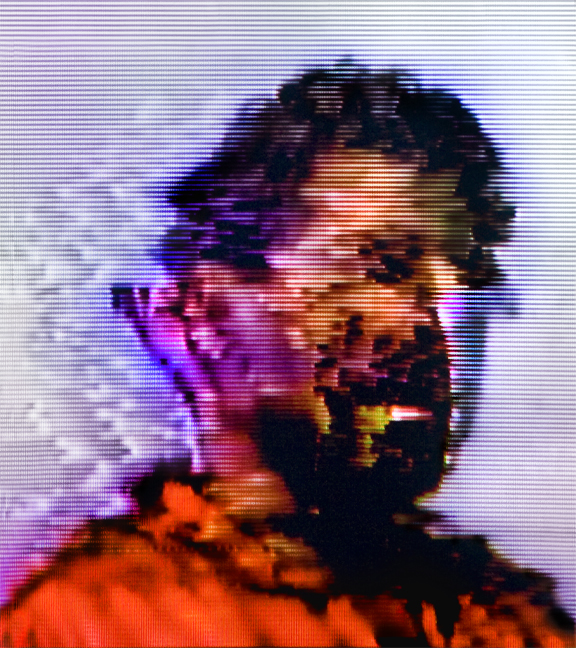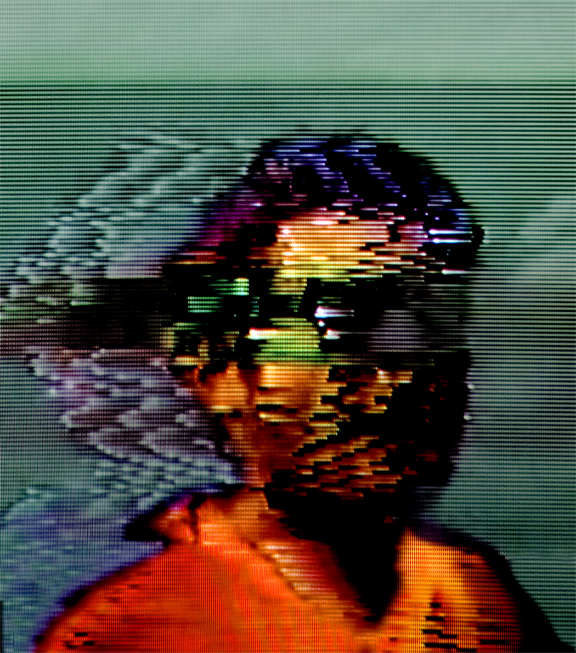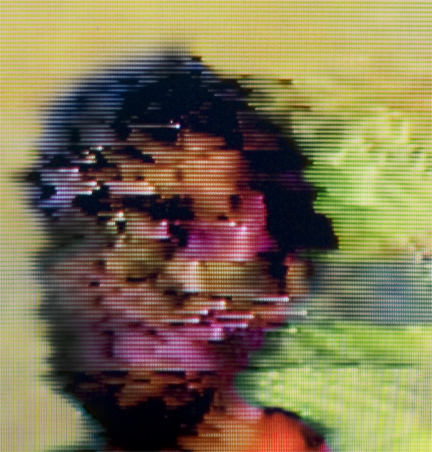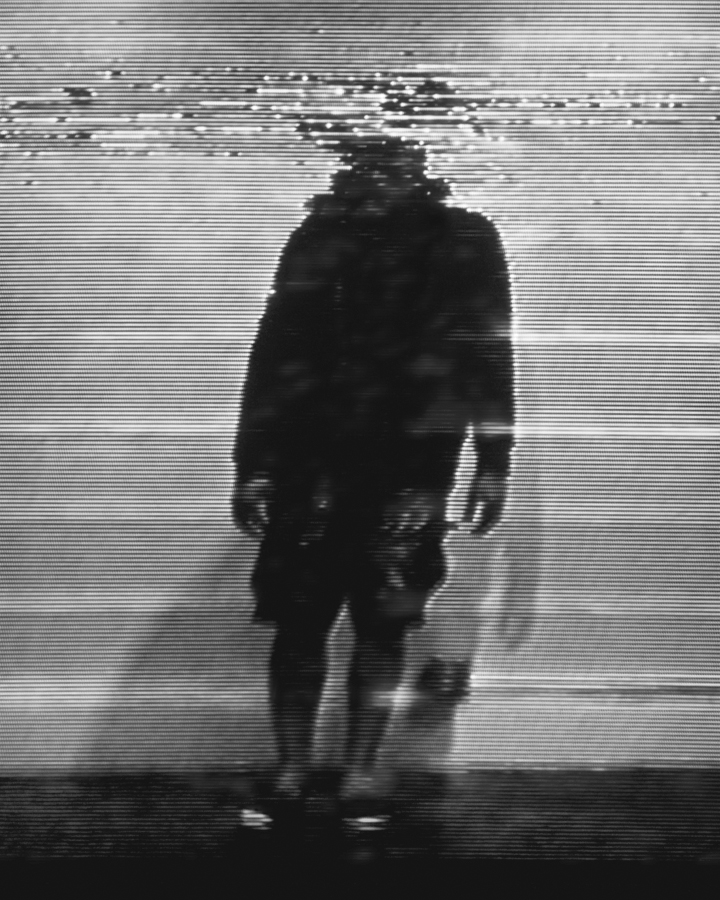KON TRUBKOVICH
FREEDOM AT LAST… ESCAPE AT LEAST
— What is freedom and what is escape? I wonder if they are one and the same. They seemed to mean the same thing to a generation of cynics when the border between east and west was closed. My parents called them shestedisyatniki – the 60s generation. I think they are known in the West as dissidents. Their ideologies were broadcast left and right in militant secrecy. Now I am here, in post-everything chaos. No one can see their own shadow and everything has a feeling of entropy and decay. I am born out of entropy; I am from neighborhood soviets and 5 year plans. I am from the cold war, glasnost, perestroika, and Coup d’états. Who could define themselves under such pressure to define? Who can have a connection to the world when the world that you were raised in is erased? All I have left are transmissions and analog signals. The same signals that once threatened The State have now become its relics.
There was such preoccupation with freedom and escape when I was growing up. The thoughts of escape, utopia and desire were on the tip of everyone’s tongue. Older brothers and sisters listened to smuggled rock n’ roll tapes, read banned poetry books, watched grainy soft core porn, dubbed over and over again until the sounds, images and words resembled abstractions. They imagined that somewhere over the border was another world. To be non-political and to escape into the analog transmissions from a foreign place was a defying stance. Metaphysical escape was to be had at any cost.
Somehow this re-dubbing and decaying created something new, a distorted grainy memory bank that did not correspond to anything other then itself. The freedom we all desired was a bitter fruit; there was no utopia out there just as there was no utopia as promised to us by the communists. But there was always Siberia. There was always Kamchatka. One could go east and test his strength or dream and stay home. We stayed home.
When I was a kid growing up in Moscow there was the one band. K I N O. The lead singer was Victor Tsoi and to me he was the only one that represented something that was not transparently state propagated. It’s strange to think that I would have been preoccupied with such lofty ideals as a kid but that was the only thing that my parents and their friends whispered about. The state was shit and everyone knew it by then. I refused to wear the red pioneer tie although I did not have a good reason for this misconduct; it represented nothing to me. The only thing that held any meaning for me was KINO. Many years later I read that one of my artistic heroes Nam Jun Paik was fascinated with this kind of transfer of freedom through culture, specifically the way rock n’ roll and video transmissions could direct a flow of ideas and with them freedom and/or escape over borders into repressive regimes. This realization made this singular Russian band seem even nobler and three years ago I began to revisit songs that I had not heard since I was really young.
One song stood out to me for its mystifying beauty and strange name, Kamchatka. Kamchatka is the furthest point east in Russia. The peninsula is past the Urals, past the tundra, past the gulags, past everything. It’s the end of the world. Nature rules the few inhabitants that are descendants of explorers, prisoners, and indigenous Koryaks. The Kamchatka peninsula is separate from everything, existing in it own universe.
How could Kamchatka inspire Victor Tsoi?
In 1980s Leningrad the underground rock club that bands played in was called Kamchatka. I guess they wanted the club to be like the peninsula itself, as far and isolated from the world as possible, a freedom refuge where kids could escape to roam. Great poetic irony, something so close to the Russian heart, went into naming this club. The name was a refusal to participate in hopeless banality all around them. Tsoi’s Kamchatka was a love song to freedom in all its beauty. I listen to it over and over again. The lyrics brim with prophetic sadness and loss but also with a drunken optimism. The analog signal goes in every direction full of hope, promise, and desire for brotherhood. The singer, an itinerant migrant searching for a face in a vast crowd with whom to connect, but finding only his own.
I look for old recordings of this song, for old footage of the band and I play them over and over again until they erase themselves in electromagnetic patricide, and then I think about what happened to all of us. What did we destroy to get here?
Victor Tsoi died on the 14th of August 1990 in a car crash outside of Tukums in Latvia. The impact of the crash was so great that one of his car tires was never found and he perished immediately. My family immigrated to America a month after his death and a year later I watched CNN on our second-hand television in Philadelphia as Yeltsin stood on a tank and The Soviet Union fell to pieces. Freedom at last… Escape at least…
Kamchatka
Oh, such a strange place, “Kamchatka”,
Oh, such a sweet word, “Kamchatka”.
I don’t see you here on earth,
I don’t see your ships,
I don’t see a river or even a bridge,
Oooh well…
Oh, such a strange place, “Kamchatka”,
Oh, such a sweet word, “Kamchatka”.
I’ve found rich ore, I’ve found love,
I’ve tried to forget, and I did
I remembered my dog, she’s a star,
Oooh well…
Oh, such a strange place, “Kamchatka”,
Oh, such a sweet word, “Kamchatka”.
I don’t see them here, I don’t see us here,
I was looking for wine, I found my third eye,
My hands made of oak, my head made of lead,
Oooh well…
Below are sketches for a new series of paintings that I am working on named Transmission. They are portraits that lack identity.
Kon Trubkovich was born in 1979 in Moscow, Russia. Selected solo exhibitions include Museum 52, London (2009); ALMOST NOWHERE, Marianne Boesky Gallery, New York (2008); WORK STUDY, Museum 52, London (2007); KON TRUBKOVICH: NO COUNTRY FOR OLD MEN, P.S.1 Contemporary Art Center, New York (2006). Group shows include OVER BEFORE IT STARTED, West Street Gallery, New York (2010); THE PENCIL SHOW, Foxy Productions, New York (2010); Athens Biennial of Contemporary Art, Athens (2009); NEW YORK MINUTE, Macro Future Museum, Rome (2009); 2nd Moscow Biennale of Contemporary Art, Moscow (2007); SIX FEET UNDER, Kunstmuseum Bern, Switzerland (2006). Trubkovich’s next solo exhibition opens September, 2010, at Marianne Boesky Gallery, New York.




